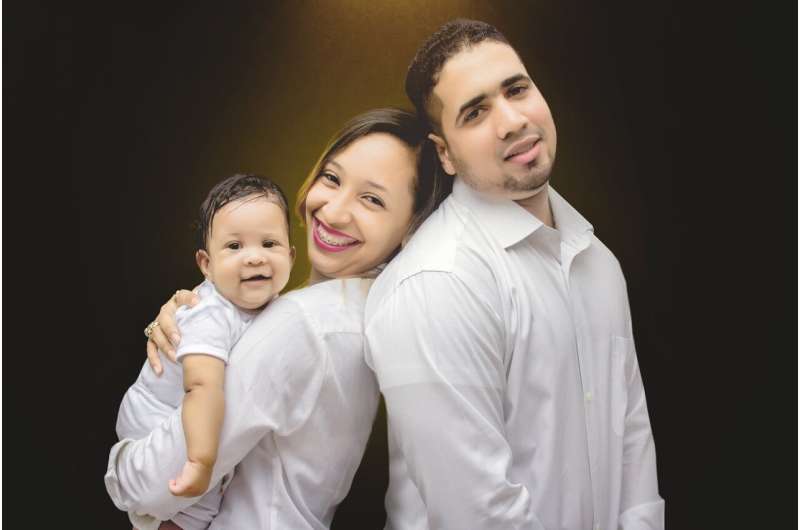This article has been reviewed according to Science X's editorial process and policies. Editors have highlighted the following attributes while ensuring the content's credibility:
fact-checked
peer-reviewed publication
trusted source
proofread
What Hispanic people—and everyone—should know about clinical trials

Despite its rapid growth, the Hispanic and Latino population in the United States continues to be underrepresented in clinical trials designed to help prevent and treat diseases.
Hispanic people make up about 19% of the nation's population, census data shows, but they represent just a small portion of participants in U.S. research studies, said Dr. Mayra L. Estrella, an assistant professor in the department of epidemiology, human genetics and environmental sciences at UTHealth Houston School of Public Health in Brownsville, Texas.
Hispanic people were just 1% of study participants, according to a National Institutes of Health report in 2015. An analysis published in the Journal of the American Heart Association in 2020 found that Hispanic people made up just 11% of clinical trial participants for cardiometabolic medications seeking Food and Drug Administration approval from 2008 to 2017.
"This is a concern because Latinos have a higher burden of disease than other groups," Estrella said.
A 2015 Centers for Disease Control and Prevention report found that Hispanic people face disproportionately higher death rates from some health conditions, including diabetes, and a higher prevalence of obesity and uncontrolled high blood pressure—all of which can contribute to heart disease.
Participating in clinical studies can help to determine if new treatments work well in Latino people and other racial and ethnic groups, Estrella said. If they are represented in a study, "then that provides a basis for the treatment and to know that it's going to work not only for non-Hispanic white populations, but also in the Hispanic-Latino population."
Experts answer five common questions about clinical trials.
What can a participant expect?
Once a volunteer joins a study, researchers walk them through the process and provide information about the study, its purpose and what participation entails, Estrella said.
"It can be a little bit intimidating at first, but it's really a process that is very straightforward," she said.
A trial typically takes place in an academic setting or clinic, and it can last from a few weeks to a year or even longer, Estrella said. If volunteers are unable to continue participating or don't feel comfortable doing so, they may be able to drop out at any time.
What is the importance of clinical trials?
The development of medical treatments for different health conditions can depend on clinical trials, Estrella said. Research on the safety and effectiveness of a new drug, for example, can result in innovative treatment options that can not only help volunteers but also benefit other patients.
Clinical trials also can test screening or behavioral interventions. "For example, people can be asked to follow a certain diet to see its impact on blood pressure," said Dr. David X. Marquez, a professor in the department of kinesiology and nutrition at the University of Illinois Chicago.
Are clinical trials safe?
Safety is of utmost importance, Estrella said. Approved clinical trials already have been through many steps to indicate that the treatment being tested is based on sound science. "And when we balance out the different risks versus benefits, the benefits outweigh the risks," she said.
Clinical trials, Marquez said, include safeguards, such as independent monitoring boards, to ensure the volunteers' safety throughout the process. If anything is deemed potentially harmful, trials are stopped.
Am I really helping?
"It absolutely does help," Marquez said. "If people don't participate in clinical trials, how are we ever going to know if a drug works, right? If it works on animals, that doesn't necessarily mean it's going to work on humans. Without participants, we don't know anything."
Marquez and Estrella agreed that greater representation of Latino people in clinical trials could help break down barriers, such as mistrust of the medical system and misconceptions about clinical research. It can also help achieve health equity, they said.
More Hispanic volunteers in clinical trials "can really make a difference," Estrella said.
More than 16,000 Hispanic adults enrolled in the Hispanic Community Health Study/Study of Latinos, the largest study of the health of Hispanic and Latino adults in the United States. In addition, Hispanic people make up 16% of participants in the NIH's All of Us study, which hopes to enroll 1 million people from all backgrounds to gather data on how biological, lifestyle and environmental factors affect people's health.
Where can I get more information?
The NIH maintains an online database of clinical research studies that are currently enrolling, are underway or are completed, along with other information, at ClinicalTrials.gov.
Experts say people should talk to their health care professional if they're interested in joining a clinical trial.




















